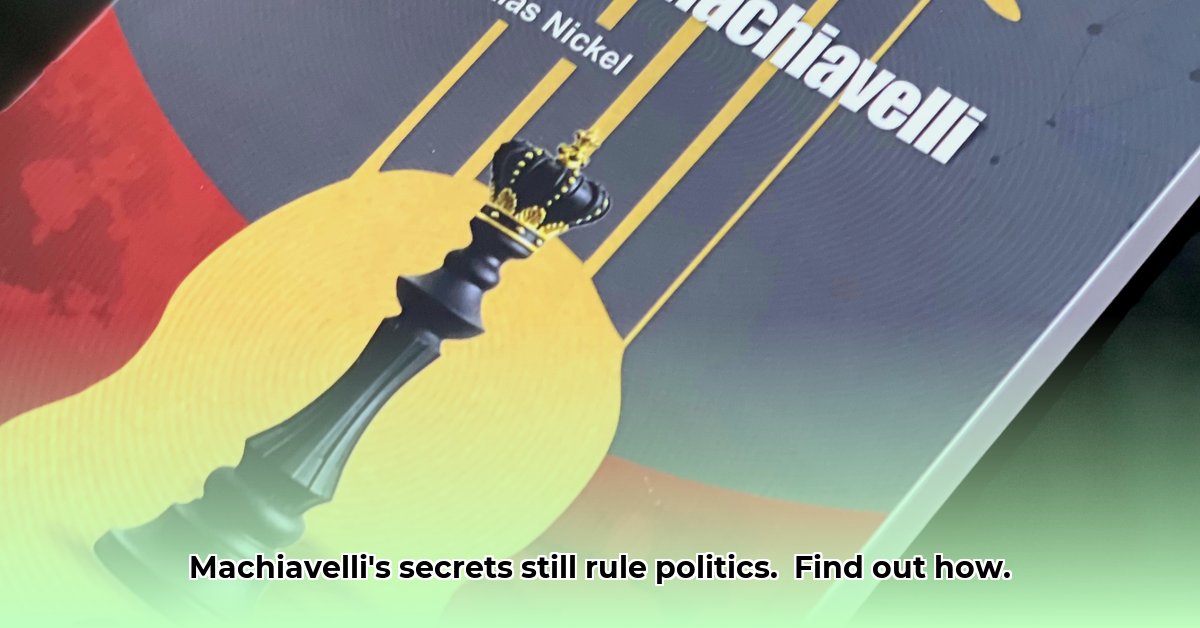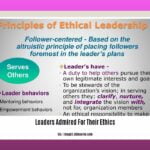Niccolò Machiavelli’s The Prince provides enduring insights into power dynamics, relevant to presidential campaigns, international negotiations, and even office politics. This article explores how Machiavelli’s concepts of skill (virtù) and luck (fortuna) influence leaders, examining the ethical questions that arise when navigating the complexities of power in the 21st century. For a modern example of empathetic leadership, see Jacinda Ardern’s approach here. Understanding the game of power is crucial for effective and ethical navigation in today’s world.
The Enduring Relevance of Machiavellian Political Philosophy
Machiavelli’s core concepts, virtù (skill or strength) and fortuna (luck or chance), remain central to grasping modern political dynamics. Virtù encompasses cleverness, adaptability, strategic foresight, and decisive action – essential qualities for leaders seizing opportunities and maintaining control. It is the ability to shape events, rather than be shaped by them. Fortuna, representing the element of chance, the unpredictable forces, and external circumstances, can significantly impact a leader’s success, often derailing even the best-laid plans. The interplay of these two forces shapes the political landscape, even today. How do these age-old concepts manifest in today’s political arena?
- Virtù: Skill in adapting to unexpected twists and turns, demonstrating resilience and strategic foresight.
- Fortuna: The unpredictable nature of external events, such as economic downturns or natural disasters.
- The interplay between skill and luck influences political outcomes, requiring leaders to remain humble and adaptable.
The Prince isn’t an instruction manual for dictators, but a sharp analysis of power dynamics and human behavior. A leader’s public image is paramount, echoing in today’s carefully crafted political campaigns. Political candidates meticulously build their image and employ sophisticated communication strategies, including targeted advertising and social media campaigns, to sway public opinion and build alliances. This mirrors Machiavelli’s emphasis on managing perception and understanding the importance of appearances. Is manipulating information ethically justifiable for political gain, or does it erode public trust?
Navigating Political Pragmatism and Modern Ethical Dilemmas
The separation of morality from politics, often attributed to Machiavelli’s principle of “the ends justify the means,” fuels ongoing debate. Some argue that pragmatism is a necessity for effective leadership, enabling leaders to make tough decisions that prioritize the state’s stability, especially when facing complex challenges and crises. Others vehemently oppose disregarding moral principles, arguing that ethical considerations should always guide political action and that leaders must uphold their responsibility to followers. This tension between achieving goals and upholding ethical standards remains a central theme in contemporary political discussions. Where do we draw the line between smart strategy and unethical behavior in today’s political climate, especially when national security or public safety is at stake?
The digital age has amplified Machiavelli’s principles, for better or worse. Social media empowers leaders to shape their image and manage reputations efficiently, building a carefully curated persona to inspire trust and loyalty. However, it also carries significant risks, such as the rapid spread of misinformation and the erosion of privacy boundaries. The ease of spreading misinformation presents both opportunities and challenges for politicians, demanding an evolved understanding of power dynamics, reputation management, and ethical communication in the digital realm. How can leaders leverage digital tools to strengthen their position while also upholding ethical standards of truthfulness and transparency?
While Machiavellian ideas illuminate political strategies, they don’t excuse unethical conduct. Democracies incorporate checks and balances, such as independent judiciaries and free press, to prevent manipulative actions and abuse of power. Transparency, accountability, and the rule of law limit leaders’ self-serving behavior. Effective communication and strategic alliances remain crucial for success, subtly reflecting Machiavelli’s teachings in democratic contexts, with 21st-century constraints. How can leaders balance the need for strategic action with the imperative of maintaining public trust and upholding democratic principles?
Modern Application Matrix: Machiavellian Tactics
| Machiavellian Principle | Historical Example | Modern Application | Ethical Considerations |
|---|---|---|---|
| Crafting a strong public image | Julius Caesar’s carefully planned public appearances | A politician’s perfectly crafted social media presence | Honesty and authenticity are key. Deception erodes public trust. Scrutiny and transparency are vital. |
| Forming strategic alliances | Papal diplomacy in Renaissance Italy | International treaties and agreements | Mutual benefit is essential. Alliances should be based on shared values and mutual respect. Secret agendas damage relationships and trust. |
| Exploiting rivals’ weaknesses | Florentine exploitation of internal conflicts | Identifying and highlighting political opponents’ flaws | Fair play is crucial. Respect for democratic processes is paramount. Attacks should focus on policy, not personal attacks. |
| Influencing public opinion | Propaganda during the Napoleonic Wars | Targeted advertising and disinformation campaigns | Truthfulness matters above all. Misinformation is harmful and undermines democracy. Transparency in media and advertising is paramount. |
Machiavelli’s work serves as a tool for analysis, not a justification for unethical behavior. The effectiveness of his ideas hinges on ethical considerations, transparency, and the specific political environment. His writings offer a framework for understanding the intricate interplay of power, skill, and chance in politics, but must be considered alongside modern ethical and democratic principles. How can we use Machiavelli’s insights to better understand political dynamics without sacrificing our commitment to ethical governance?
Ethical Leadership: Reinterpreting Machiavellian Principles in Business
The Prince has surprising applications for ethical business leadership, despite its reputation for ruthlessness. The core tenets, when recontextualized, provide valuable strategic insights. Instead of promoting manipulation, these tenets should encourage leveraging the understanding of human behavior for constructive purposes, building trust instead of exploiting vulnerabilities, and fostering a strong and collaborative team. This requires leaders to demonstrate emotional intelligence, empathy, and respect for their employees. How can we separate strategic wisdom from ethical risks, ensuring that business decisions are both effective and morally sound?
Machiavelli emphasized pragmatism, arguing leaders must make difficult, even unpopular, choices to achieve their goals and maintain the stability of their organization. A leader may anticipate their opponent’s moves, plan several steps ahead, and adapt to unforeseen circumstances. In today’s business world, successful leaders proactively identify potential obstacles, leverage market analysis, and implement contingency plans to overcome them using calculated foresight. Is it about being immoral or simply recognizing that the path to success isn’t always paved with virtue, and that leaders may need to make unpopular decisions for the long-term benefit of their organization?
Ethical Application in Business
- Strategic Networking: Build strong, transparent relationships with clients, partners, and employees based on trust and mutual respect.
- Decisive Action: Take calculated risks and make timely, informed decisions based on data, ethical considerations, and stakeholder input.
- Adaptability: Embrace innovation, foster a culture of continuous learning, and continually evaluate strategies in response to market changes and ethical considerations.
We can extract strategic insights from Machiavelli without adopting his morally questionable tactics. Transparency and integrity are crucial, so use your understanding of human nature to build and lead, not to control and manipulate. Treat employees and stakeholders with respect, and prioritize ethical conduct in all business dealings. This commitment to ethical conduct is what makes How to ethically apply Machiavellian principles in modern business leadership possible.
Conclusion: Reconciling Power, Ethics, and Sustainability
Machiavelli’s emphasis on pragmatism and power dynamics remains strikingly relevant in modern business, but ethical considerations are paramount. Unethical lapses, such as fraud or environmental damage, can severely damage a company’s reputation and financial standing, undermining its long-term sustainability. Digital technologies offer unprecedented opportunities for subtly influencing public opinion, which is why responsible strategic decision-making, guided by ethical values and a commitment to transparency, is key for long-term business success. How can leaders effectively balance the pursuit of profit with the imperative of ethical conduct, ensuring that their actions contribute to a sustainable and equitable future?















